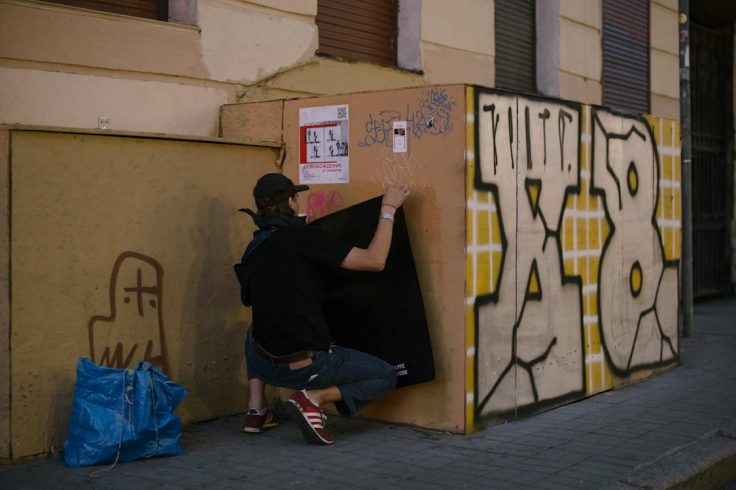In the aftermath of Hamas's attack on Israel and the ensuing conflict, the University of Texas at Dallas became a battleground for student expression. Utilizing the campus tradition of painting the "spirit rocks," students engaged in a visual discourse, with messages both in support of Palestine and Israel. However, the atmosphere took a contentious turn when slogans like "Zionism = Nazism" appeared, prompting administrators to unexpectedly remove the rocks over a month later.

The Spirit Rocks as a Canvas
The large stones, serving as the university's "spirit rocks," traditionally offered students a space for artistic and expressive communication. As tensions rose following the Israel-Hamas conflict, students on both sides painted messages reflecting their views. The rocks adorned the colors of the Palestinian flag or displayed support for Israel in blue and white. Slogans such as "End Occupation," "Free Palestine," and "USA stands with Israel" echoed the diverse perspectives present on campus.
A Flashpoint for Dialogue
The dueling graffiti on the spirit rocks became a focal point for student expression and debate. Proponents from both camps camped out to protect their messages, leading to heated arguments but, according to The Mercury's editor in chief, Fatimah Azeem, the discourse remained largely peaceful. The university's president, Richard C. Benson, commended the students for engaging respectfully and civilly in a diverse community.
Abrupt Removal Sparks Backlash
Despite the apparent peaceful coexistence of conflicting messages, administrators chose to remove the rocks abruptly, citing inconsistencies with their original purpose and guidelines. The Division of Student Affairs explained in an email to students on Nov. 20 that the rocks were not intended for prolonged political discourse, and the painted messages had negatively impacted individuals on and off campus. The specific trigger for this decision remains unclear, as UT Dallas officials did not respond to requests for comment.
Debate on Free Expression Areas
The incident at UT Dallas reflects a broader challenge faced by universities in managing free expression areas amid politically charged debates, particularly regarding the Israel-Hamas conflict. Campuses across the U.S. have witnessed clashes over permissible language, with slogans like "From the river to the sea, Palestine will be free" deemed antisemitic. Duke University covered the contentious phrase on its "free expression bridge," while the University of Connecticut considered relocating its spirit rock after rule violations.
Calls for Reinstatement and Free Speech Advocacy
The removal of UT Dallas's spirit rocks prompted significant backlash from students and free speech advocates. The Foundation for Individual Rights and Expression (FIRE), a free speech advocacy organization, wrote to President Benson, urging the university to reinstate the rocks. FIRE argued that the rocks had become a limited public forum for student speech, and restricting messages based on viewpoint violated students' rights. An email campaign by FIRE is mobilizing supporters to express their dismay at the removal.
Ongoing Dispute and Student Voices
As students return from winter break, the spirit rocks remain absent, despite protests and calls for reinstatement. A poll conducted by The Mercury indicated overwhelming student support for bringing back the rocks, emphasizing the significance of the space as a premier platform for public opinion. The absence of a suitable replacement has fueled the demand for the restoration of this long-standing campus tradition. The dispute underscores the challenges universities face in balancing free expression with the sensitivities surrounding contentious global issues.
© 2025 University Herald, All rights reserved. Do not reproduce without permission.








